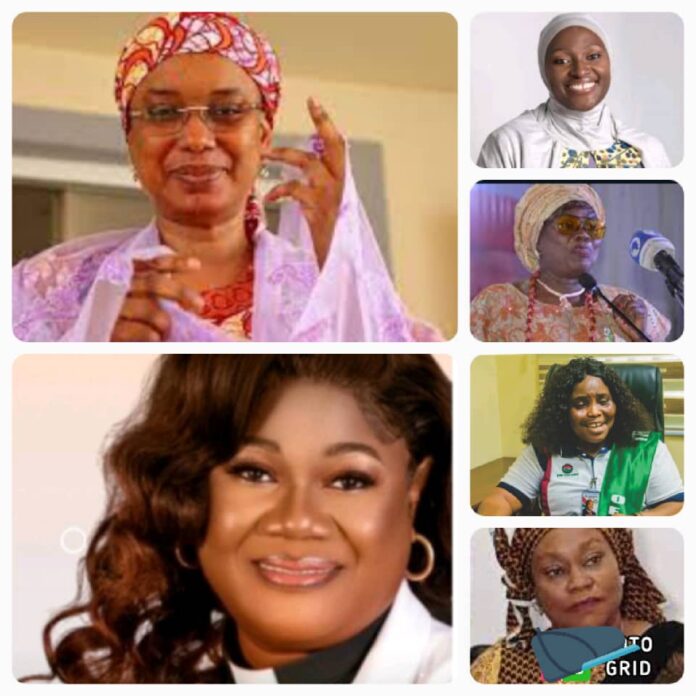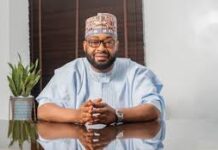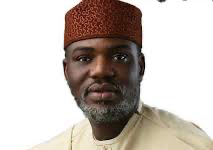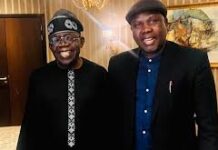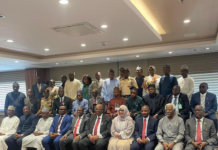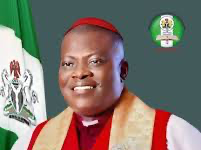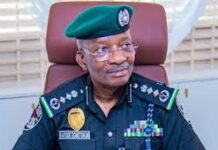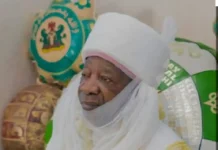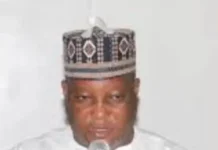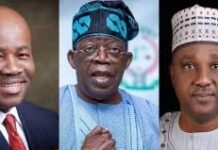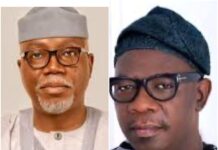Eliminating the Barriers to Women’s Participation in Politics By Hanan Najeeb Abdussalam
POLITICS DIGEST – A significant democratic weakness that threatens the validity of the modern democratic ideal is the underrepresentation of women. Therefore, parity democracy and the advancement of women in decision-making are major areas of work. Equal representation of men and women in decision-making roles is implied by the term ‘parity democracy’.
Nigeria, a nation recognized for its thriving democracy and rich cultural variety, has made considerable advancements throughout the years. However, hurdles still exist that prevent women from being fully represented and contributing to politics.
The active participation of women in politics in Nigeria is still hampered by cultural norms, patriarchal systems, resource constraints, violence, and a lack of support within political parties. Notwithstanding ongoing difficulties and gender inequities in the political environment, women in Nigerian politics have made great progress in recent years.
Following are some crucial points regarding women in Nigerian politics.
Representation: Women have historically had little representation in Nigerian politics, despite the fact that it is the most populated nation in Africa. To boost the number of women in political leadership roles, however, initiatives have been made. Nigeria currently has a low proportion of women in the National Assembly, with 4% of seats in the House of Representatives and 6% of Senate seats held by women as of the September 2021 cutoff date.
Political Parties: The engagement of women in political parties is essential to their involvement in politics. There are provisions for promoting gender equality and encouraging women’s participation in many political parties’ constitutions in Nigeria.
These provisions haven’t, however, always resulted in substantial representation in party structures and decision-making processes.
Women’s Organizations: Several advocacy and women’s organizations have been trying to expand the number of women who participate in politics in Nigeria. For women who want to run for political office, these organizations offer training, mentoring, and support. Additionally, they support changes in legislation that would advance political equality for women.
Women have several obstacles and difficulties when trying to get involved in Nigerian politics. Among these are patriarchal structures, limiting access to financing and resources, violence and intimidation, and a lack of support inside political parties.
Read Also:
The underrepresentation of women in political leadership roles is influenced by several variables. Strong cultural and societal norms are a major barrier to women’s political participation in Nigeria. Traditional gender roles frequently limit women to the home and discourage them from participating in public life. Prevalent preconceptions keep up the idea that politics is a field dominated by men, discouraging women from pursuing careers in politics.
Expanding women’s political presence requires challenging these stereotypes and advancing the notion that they can lead successfully. Women’s participation in politics in Nigeria is severely hampered by the patriarchal structure of the country.
Men tend to hold more power inside political parties and institutions, which leads to an imbalance of gender in positions of decision-making. Women’s opportunities to advance to significant roles are constrained by discriminatory behaviors and biases.
Political systems must change in order to overcome these obstacles. Funding and resources are essential for mobilization and political campaigns. However, there are substantial obstacles for women in this area. Women are at a disadvantage since they have less financial resources and lack the networks needed for effective campaigns.
Women can be empowered to overcome financial obstacles and actively participate in political processes through improving access to financial support, mentorship programs, and training opportunities. Threats, intimidation, and violence are commonplace for women in Nigerian politics, both during elections and once they are in office.
Women are silenced and intimidated using physical violence, abusive language, and online harassment. Such behaviors undermine women’s confidence and safety by fostering a hostile environment that deters women from entering politics.
Fostering an inclusive and secure political environment requires strengthening legal frameworks and putting policies in place to protect women from assault.
For anyone wishing to enter politics, political parties provide an essential forum. Sadly, women frequently experience hostility and a lack of support in these parties. Women are marginalized by male-dominated systems and decision-making processes, which limits their opportunities to hold leadership positions.
To give women in politics equitable chances, inclusive party structures, gender equality advocacy, and affirmative action policies must be put in place. Progress has been made recently despite the ongoing obstacles that prevent women from participating in politics in Nigeria.
Gender equality in political leadership must be attained by initiatives to confront cultural norms, take on patriarchal systems, improve access to resources, and boost support inside political parties. All stakeholders must work together to remove these hurdles, including policymakers, political parties, civil society organizations, and the general public.
Encouraging women to take an active role in politics not only improves democracy but also ensures different viewpoints, inclusive governance, and long-term prosperity for Nigeria. Nigeria can develop a political environment in which women’s voices are amplified and their potential for leadership develops by collaboratively tearing down these barriers.
Hanan Najeeb Abdussalam
Mass Communication Dept
Skyline University Kano

